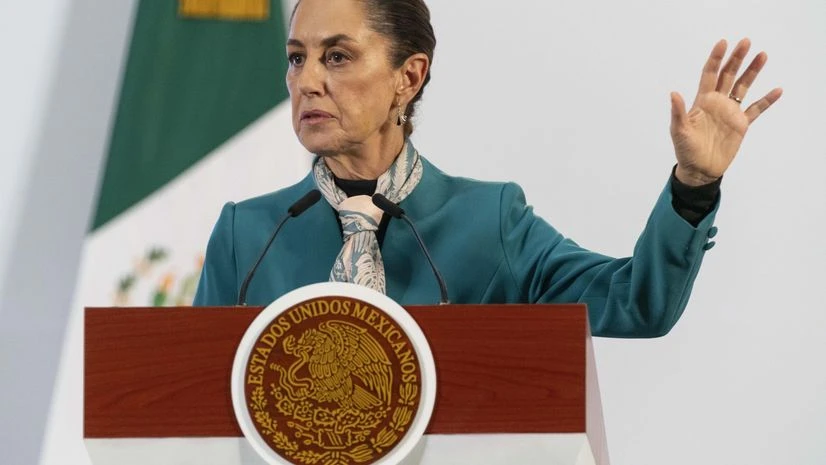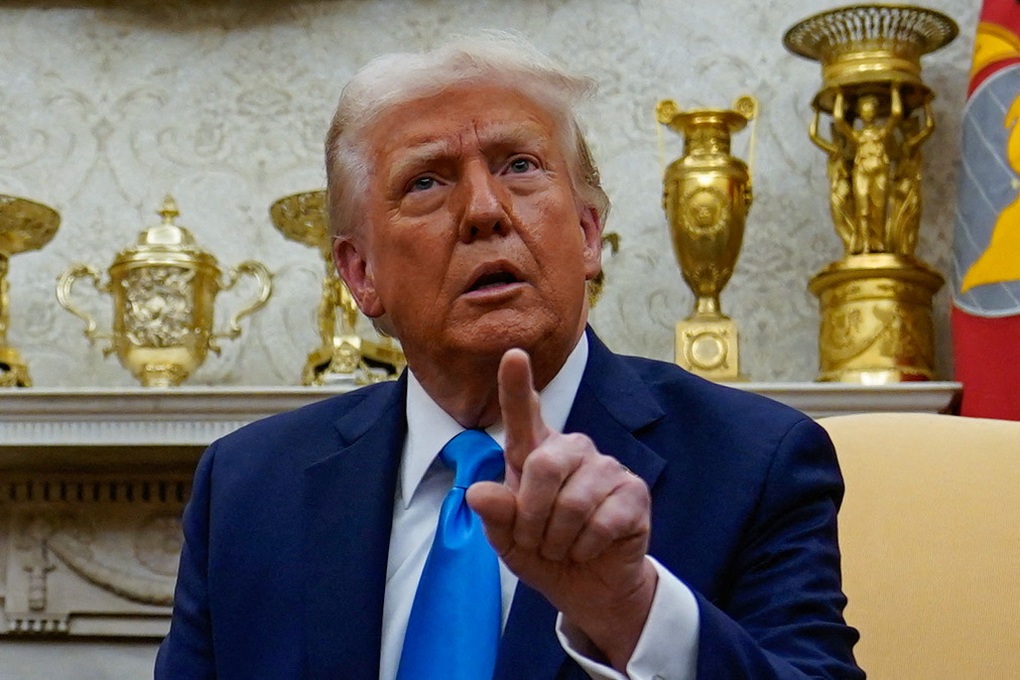Mexico’s President Hits Back at U.S. Over Drug Cartel Allegations

Mexican President Claudia Sheinbaum has fiercely criticized the United States, accusing it of harboring drug cartels and failing to address its own role in the drug crisis. Her comments came in response to U.S. President Donald Trump’s claim that there is an “intolerable alliance” between the Mexican government and organized crime.During her Thursday morning press conference, Sheinbaum rejected Trump’s accusations, turning the focus back on the U.S. “There is also organized crime in the United States, and there are American people who come to Mexico with these illegal activities,” she stated. “Otherwise, who would distribute fentanyl in the cities of the United States?”Her remarks follow a recently released report that revealed a staggering 450% increase in the arrests of U.S. citizens for crimes related to organized crime during the tenure of her predecessor, Andrés Manuel López Obrador. Sheinbaum used this data to emphasize that the responsibility for tackling drug cartels does not lie solely with Mexico.“The United States must do its job in its own country, make the arrests that need to be made, and stop the trafficking of drugs within its own borders,” she asserted.
)
Trump and other U.S. officials have long accused Mexico of not doing enough to curb drug trafficking, particularly the flow of fentanyl into American cities. His administration even designated certain Mexican cartels as foreign terrorist organizations, further escalating diplomatic tensions between the two nations. In his presidency, Trump threatened to impose a 25% tariff on all Mexican goods, using the pressure of economic consequences to demand stronger enforcement against both drug and migrant flows. In response, Sheinbaum’s administration agreed to deploy an additional 10,000 national guard troops along the U.S.-Mexico border. Despite these efforts, experts note that Mexican organized crime networks are deeply embedded in the United States itself, controlling vast drug distribution operations across the country.“ They’re in virtually every corner of the country, no doubt about it,” said Jack Riley, former head of the Drug Enforcement Administration (DEA) office in Chicago. “In terms of the control of the dope, the movement of narco money, I would say they’re the number one.
”Sheinbaum’s counterattack highlighted another growing concern—Americans themselves are playing a significant role in drug smuggling. Former law enforcement officials, like Riley, have acknowledged that U.S. citizens, particularly those with dual citizenship, are frequently recruited by cartels to smuggle drugs across the border.“ Anybody that has dual citizenship, [or] U.S. citizenship, can be influenced and corrupted by the cartels,” Riley explained. “Almost all of that occurs at the border checkpoints in vehicles. It’s not the guy with the backpacks when they cross the Rio Grande.

”With fentanyl overdoses becoming a national crisis in the U.S., Sheinbaum insisted that American authorities need to focus on enforcement within their own borders rather than solely blaming Mexico . Beyond drug-related tensions, Sheinbaum also addressed another brewing controversy—Mexico’s dispute with Google Maps. The tech giant recently changed the name of the Gulf of Mexico to the “Gulf of America,” allegedly following pressure from Trump. “If necessary, we will file a civil suit,” Sheinbaum declared. “Even President Trump isn’t proposing that the entire Gulf of Mexico be called the ‘Gulf of America,’ only their continental shelf. So Google is wrong.

”Her statement reflects Mexico’s broader effort to push back against perceived U.S. overreach, both in political rhetoric and geographic disputes. Sheinbaum’s firm stance signals that the friction between Mexico and the U.S. over drug trafficking and security policies is far from over. As both nations prepare for upcoming elections and shifting political landscapes, their relationship remains one of complex negotiations and mutual accusations.While Sheinbaum has made it clear that Mexico will not accept sole blame for the drug crisis, the pressure from the U.S. is unlikely to subside.With fentanyl and cartel violence remaining major concerns for American politicians, particularly in conservative circles, Mexico will likely continue to be a focal point of U.S. domestic policy debates.For now, Sheinbaum is doubling down on her country’s sovereignty, demanding that the U.S. acknowledge its own failings and take responsibility for the role its citizens and institutions play in the international drug trade.Whether her pushback will change the tone of diplomatic relations or further escalate tensions remains to be seen.



